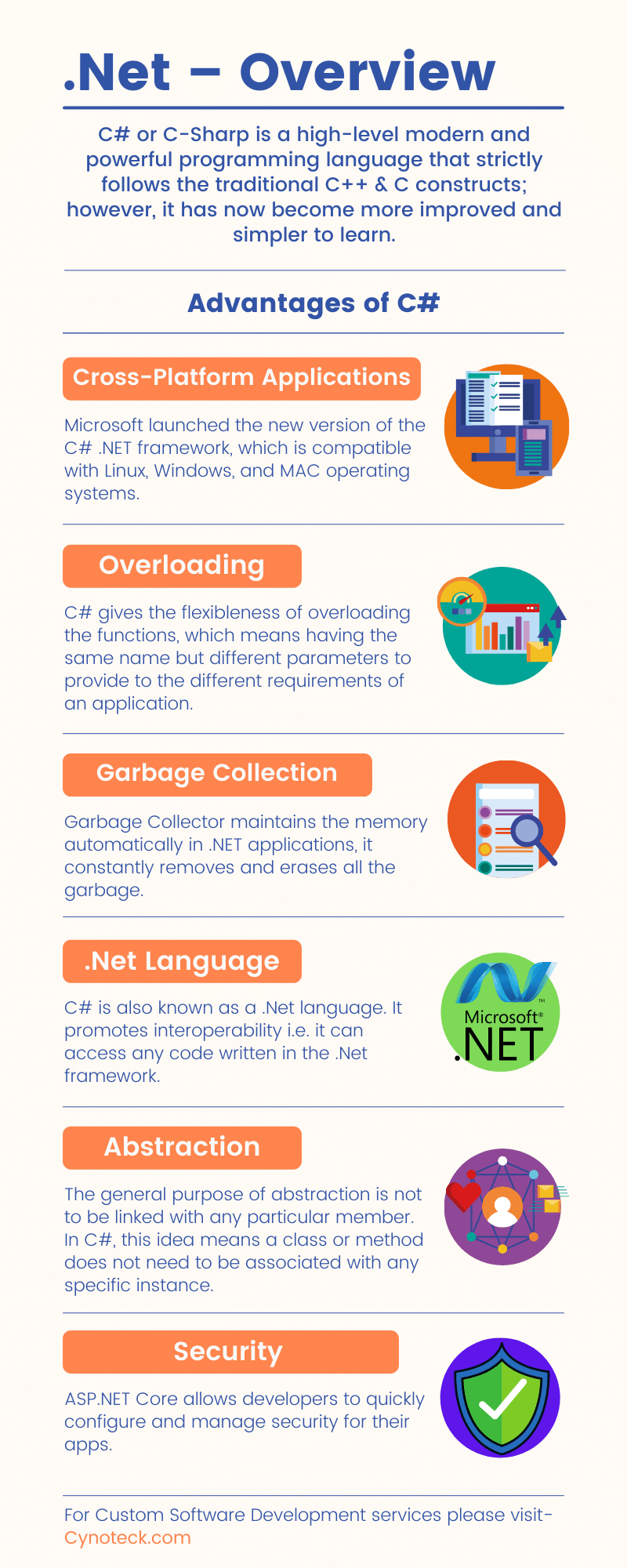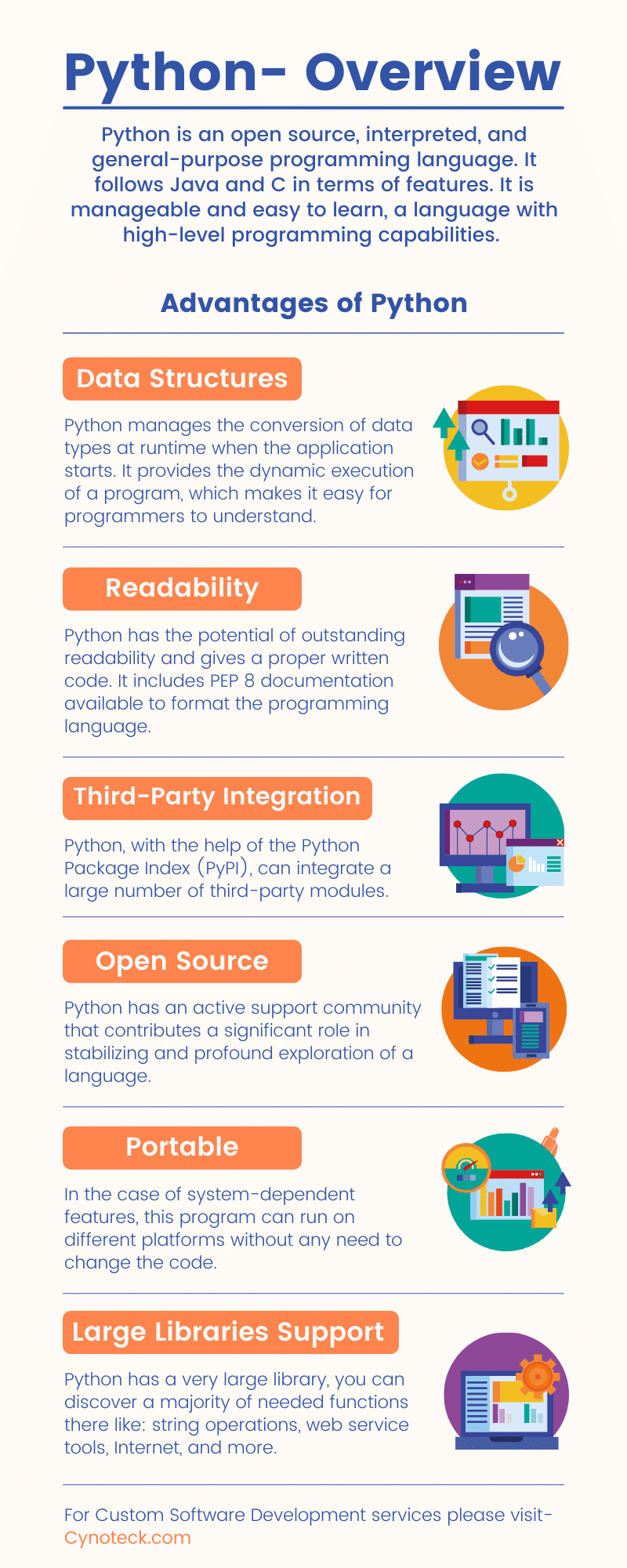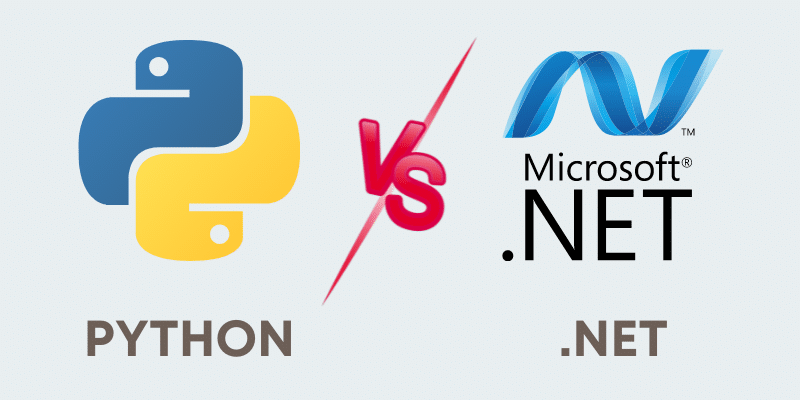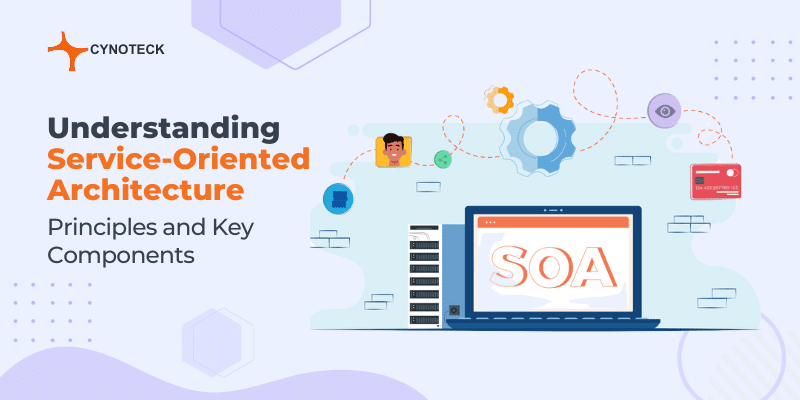Each day brings some new advancement in the technology, and now the time has changed which makes only the more established ones to grow, and with that, the capacity and the quality of the specialized languages are additionally expanding at a great pace. That is one of the main reasons why it is tough to choose the most suitable programming language for your next business project. It is challenging to pick one among all innovations, and that is the reason why this blog is designed by the experts of the most reliable mobile app development company, discussing the two mainstream programming languages – .Net and Python.
Python and .Net are both among the popular programming languages of 2021. Both of these are based on OOPs (Object-oriented programming) concepts, are easy to learn and code, and provide fast development and great performance.
Each one of these languages is mainstream. Now, we will discuss who is better for your business app and why? – Python vs .Net. Before we jump into the differences, let us take a quick overview of each one of them so that we can understand the differences better. Let’s get started.
.Net – Overview
C# or C-Sharp is a high-level modern and powerful programming language that strictly follows the traditional C++ & C constructs; however, it has now become more improved and simpler to learn. It is used to develop a large number of complicated and large-scale applications.
C# code can be compiled on various platforms, this Object-oriented programming language has some structural similarities that are more in common with Java. You will find C# powering cutting-edge technologies such as Microsoft HoloLens and websites like Stack Overflow.

Also, read: Bots vs Apps for business needs – know what to expect
Advantages of C#:
C# is a multi-paradigm programming language, here classes are grouped in a single or multiple namespaces empowering you to make a set of reusable libraries.
1) Cross-Platform Applications
Microsoft launched the new version of the C# .NET framework, which is compatible with Linux, Windows, and MAC operating systems.
.NET Core provides future-in-mind development, an enhanced version of .NET, which enables adaptability and scalability. There are improvements done in every subsequent version of this language.
2) Overloading
C# gives the flexibleness of overloading the functions, which means having the same name but different parameters to provide to the different requirements of an application.
3) Garbage Collection
Garbage Collector maintains the memory automatically in .NET applications, it constantly removes and erases all the garbage.
Whenever an object is being called by a function, the CLR (Common Language Runtime) allocates the memory by having an updated graph.
4) .Net Language
C# is also known as a .Net language. It promotes interoperability i.e. it can access any code written in the .Net framework. You can additionally access COM components, which are easier to implement than any other language.
5) Abstraction
The general purpose of abstraction is not to be linked with any particular member. In C#, this idea means a class or method does not need to be associated with any specific instance.
6) Security
ASP.NET Core allows developers to quickly configure and manage security for their apps. It includes features for maintaining authentication, authorization, HTTPS enforcement, data protection, app secrets, CSRF/XSRF prevention, and CORS management.
These security features empower you to develop robust yet secure ASP.NET Core apps. ASP.NET also provides the following authentication and authorization: Windows Authentication, Forms-Based Authentication, Passport Authentication, and more.
7) LINQ
Microsoft Cooperation delivered LINQ as a powerful component with C#. LINQ is a .NET element that enables the processing of the native queries straight into the C#.
Also, read: SASS vs LESS: What to Choose?
Key Features:
- Simple, robust, and scalable.
- High-level structured programming language.
- Integration with .NET framework.
- Modern syntax; easy to learn.
- Rich standard library.
- Type-safe code, C# doesn’t admit unreliable casts.
- Quick compilation and execution time.
Applications of C#:
- Games using Unity
- Class Libraries
- Web Applications, Client-Server Applications
- Windows Applications that work on desktops
- Console Applications
- Web Services Applications
Looking for Web App Development Services
Send us your requirements, we will get back to you with a quote
Also, read: Java vs .Net development for your project: speed, complexity, & power comparison
Python – Overview
Python is an open source, interpreted, and general-purpose programming language. It follows Java and C in terms of features. It is manageable and easy to learn, a language with high-level programming capabilities.
Websites such as Python powers Reddit, Pinterest, YouTube, and Instagram. Python, being the most widespread programming language finds excellent usage in today’s modern development trends such as machine learning.
Also, if you are new to programming, Python is where you should start your programming journey.

Advantages of Python:
1) Data Structures
Python manages the conversion of data types at runtime when the application starts. It provides the dynamic execution of a program, which makes it easy for programmers to understand.
2) Readability
Python has the potential of outstanding readability and gives a proper written code. It includes PEP 8 documentation available to format the programming language.
3) Third-Party Integration
Python, with the help of the Python Package Index (PyPI), can integrate a large number of third-party modules.
4) Open Source
Python has an active support community that contributes a significant role in stabilizing and profound exploration of a language. It is free to use under the license of GPL (a free software license).
5) Portable
In the case of system-dependent features, this program can run on different platforms without any need to change the code.
6) Large Libraries Support
Python has a very large library, you can discover a majority of needed functions there like: string operations, web service tools, Internet, and more.
Also, read: Software consulting vs software development – understand the marketplace and your needs on it
Key Features:
- Python has been developed under an open-source license.
- Supports both structured and functional programming and Object-Oriented Programming.
- Easy to code, maintain, read, and port.
- A strong standard library that is compatible and portable on different platforms like Windows, Unix, or Mac.
- Also supports automatic garbage collection.
Applications of Python
- Prototyping
- Software Development and Language Development
- GUI based desktop applications
- Graphic design and Games
- Image processing applications
- Business and Enterprise applications
Also, read: Hybrid apps vs native apps- the checklist to figure out what’s right for you
C# and Python – Comparison
Now that we have a basic understanding of both these languages, let us compare them more deeply to understand some profound differences:
1) Ease of use
C#
C# developers normally need a basic knowledge of language constructions as functions and classes. C# is a perfect choice for anyone experienced in Java.
Python
Python does not need knowledge of various language constructions. As Python developers can learn and understand more during the development process.
2) Programming and Development Speed
C#
C# offers a predefined set of libraries that can be used in a specific syntax. You can also employ some tips and tricks to speed up the programming in C#.
Python
Python is an extremely readable programming language that puts more emphasis on coding rather than learning the syntax. It has a simple syntax and does require any semi-colon to be added in each line of code to split the line statement.
3) Dynamic vs Static
C#
C# is a static programming language. It needs to compile the written code before the execution of any program and identify any compilation errors. The data types should be identified before the runtime otherwise the program will throw an exception and will fail to compile.
Python
Python is a dynamic programming language and has dynamic typecasting. It gives no need for variable declarations, which means that the data type of the calling variables will be determined during run time. In Python, the process is easier and faster — it runs immediately.
4) Performance
C#
C# is a compiled programming language that extends the compilation time of a program, it requires more time and effort to write code but produces more efficiency during its performance.
Python
Python is an interpreted language; therefore, its speed relies on the interpreter. It runs quickly when the program starts.
5) Application
C#
C# is an object-oriented programming language employed to develop a broad variety of applications right from desktop to game development.
When it comes to the implementation of machine learning applications, C# has a limited number of libraries.
Python
Python is an open-source multi-paradigm language and an extremely popular choice for machine learning.
It is used to develop highly scalable applications with some famous libraries like NumPy, Pandas, TensorFlow, and many more.
6) License
C#
C# has an official IDE i.e. Microsoft Visual Studio, which is a paid software for large businesses and organizations.
It additionally has a free version for small community and individual developers but with limited features.
Python
Python is a general-purpose programming language under the license of GPL. It is open for everyone to use and can further add to the community of Python.
It is considerably cheaper than the C#, which needs licensing costs to create .NET applications.
Also, read: Cypress vs Selenium – Select your Automation Framework
Conclusion
Now as we wind up this article, we need to have some more clarity on the same question: Python vs .Net (#C)? It is difficult to choose which is better. Plus, it is also difficult to compare, as these tools are extremely different and also serve a different purpose.
Both of these are high-level programming languages and are easy to learn and code. They offer high performance and provide the power of implementing object-oriented concepts. C# is widely used in enterprise applications while Python is more flexible and simpler to learn.
Python seems excellent for data analytics and machine learning while .NET is great for developing scalable and robust business applications. In terms of community support and several exciting open-source projects, python is better. However, in terms of productivity and optimization, Microsoft provides much more valuable features particularly with .Net Core which is extensively popular nowadays.
Python can be the optimal choice if your project depends on high speed and performance. It’s easy to learn, provides options for smooth cross-platform development, and gives developers a stock of useful open-source libraries that expedite the development process. But, if your project needs excellent top performance, Microsoft integration, and interdependence on a standard library and syntax, C# is a better choice. Look for your business requirements and make your choice accordingly. All the best!

Software Development Services
Are you looking for a reliable software development company? Our highly skilled software developers enables us to deliver result oriented software development services. Contact our team to understand, how we can help you in achieving your business goals.





You are doing well with your posts you will lead the software world with such a level of knowledge.